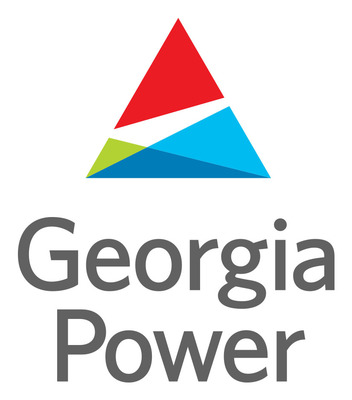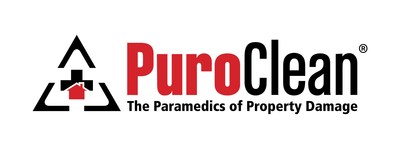When we first featured Coral Almazan as part of T-Mobile’s Project 10Million story series, she was preparing for her college freshman orientation.
She was one of millions of students whose academic paths were disrupted by COVID-19 lockdowns.
“I think being a high schooler during COVID was probably one of the harshest times anybody could have experienced,” she says. “Those are supposed to be the best times of your life and yet we were stuck behind computer screens.”
Sent home to continue her classwork without reliable internet, Almazan says the uncertainty was frightening.
“There were times the electricity bill still needed to be paid, and I was left wondering, ‘How will I connect to my classes? How will I complete my homework?’ I remember struggling.”
Her story is one that resonates today. Despite the clear need, reliable home internet remains out of reach for too many. A new survey* commissioned by T-Mobile found that three in 10 parents describe their home internet as only somewhat reliable.
For many families, staying connected comes at a steep cost — 24% have had to cut back on essentials like food or utilities just to afford internet. And the vast majority (85%) of parents agree that families shouldn’t have to make that kind of trade-off.
A Hotspot That Changed Everything
Today, Almazan isn’t just the first in her family to attend college — she’s paving a path to influence the very systems that supported her success. Now earning her criminal justice degree at Houston Christian University (while already starting master’s-level courses), she credits T-Mobile’s Project 10Million as a pivotal part of her aspirations.
“Project 10Million definitely influenced me to go into policy work,” Almazan shared. “Helping each other out should be everybody’s motivation.”
Launched in 2020, Project 10Million set out with a bold mission: provide 10 million student households with free hotspots, free data plans and access to low-cost laptops and tablets. Almazan was one of those students. Her Texas school district distributed the T-Mobile hotspot that powered her through the pandemic and helped open new possibilities. By the end of 2024, through Project 10Million, T-Mobile connected over 6.3 million students to the internet and provided nearly $7.3 billion in critical tech tools and services that helped close the connectivity gap.
The Divide Didn’t End with the Pandemic
Though COVID-19 has faded from the headlines, the digital divide has not.
“The digital divide for me has always been a huge issue,” says Dr. Joe Phillips, Chief Information Officer for Fulton County Schools in Atlanta. “Matter of fact, I think it’s the largest divide socioeconomically that we have today.”
Dr. Phillips leads IT for one of the largest school districts in the U.S. and says today’s digital divide is different, and in some ways deeper than five years ago.
“The importance of staying connected at home post-pandemic is even greater now,” he says. “The digital divide hasn’t gone away since, and a lot of the educational institutions that went to this digital learning model have stayed with it.”
It’s why in 2024, T-Mobile even expanded access by doubling the annual data allowance to 200GB for qualifying student families who sign up for Project 10Million directly with T-Mobile and adding discounted data passes if needed, powered by T-Mobile’s network — America’s Best Network.
He explains that the rapid adoption of new digital learning tools has become a chasm for those who fall into the modern divide.
“The great equalizer that we have, whether it’s AI or some other instructional digital platform like YouTube that school districts are using, only works if kids can connect to it and if parents can connect to it,” he noted.
Parents agree: Free internet programs can ease the burden and level the playing field. In fact, 60% of parents surveyed say limited connectivity could impact their child’s future success, and 77% believe companies have a responsibility to help students access the technology they need for school. Yet awareness remains a barrier — while 76% say a free mobile hotspot and internet would make a meaningful difference in their family’s life, only two-thirds know these programs even exist.
Dr. Phillips says a variable contributing to these findings is the closure of connectivity support programs implemented during the pandemic. For example, in June 2024, over 23 million households lost the $30 per month broadband benefit through the Affordable Connectivity Program (ACP) and 40% of people who received help through ACP say they’ve had to cut back on food to afford their internet bill. That’s where T-Mobile’s Project 10Million comes in — offering free internet access, mobile hotspots and low-cost devices directly to eligible student families across the country.
Since 2020, Project 10Million Has:
- Connected 6.3 million+ students
- Provided nearly $7.3 billion in free and subsidized tech and service
- Doubled annual data allowance to 200GB and added discounted data passes
- Starting in 2025, allowed eligible student families to directly received new 5G-enabled hotspots
- To learn more or sign up, visit:
t-mobile.com/project10million.
“It Changed Everything for My Whole Family”
Almazan says the effects of her T-Mobile hotspot rippled through her entire household.
“It wasn’t just my schoolwork,” she says. “My siblings were able to do theirs too with no lag, even when we were online together. The graphics on my class Zooms got so much clearer. It made a huge difference.”
The transformative impact of the device is not lost on Dr. Phillips.
“It works well for its intended educational purposes, but it helps lift all the boats for that family,” he says.
He warns that reduced connectivity can also mean higher dropout rates, more attendance issues and a growing sense of educational exclusion. But programs like Project 10Million provide families with an easy way to ask for and get support.
“So much messaging from administration today comes through emails and if students are trying to keep up in fast paced competitive schools but are not connected, it can leave them feeling like they’re not part of the entire school community,” Phillips explains. “One of the cool things about T-Mobile stepping up and doing it directly is it makes families more comfortable to ask for help when they don’t have to let the school or the school district know that this is something that they’re dealing with.”
The Student Becomes the Advocate
What happens when one student gains access to the internet at home? For Almazan, it didn’t just change her school year — it changed her trajectory.
“I’m really interested in education and how technology and policy should work together to support marginalized communities,” she says. “Having resources like that for children to be better, to uplift the next generation, it really inspired me.”
She says she’s happy to be the face of what digital equity programs like Project 10Million do for students in need.
“I’m more than happy to take on that role,” Almazan said. “I think a lot of people are too scared to reach out because they don’t see people that represent them. Having come from a family of poverty, I hope whenever they see me succeed, they can say, ‘I can also reach out for that help. I can also succeed.’”
Because learning doesn’t stop when the bell rings, opportunity shouldn’t either. That’s why T-Mobile is committed to helping students thrive — in school, in life and beyond. Programs like Project 10Million don’t just close gaps. They open doors.
Eligible K-12 student households can get connected for free through Project 10Million.
Learn more or sign up at t-mobile.com/project10million.
*The Project 10Million Survey was conducted via a PN View survey fielded by Big Village among a sample of 1,005 U.S. adults 18 years of age and older who are parents with children 17 years of age and under living at home. This survey was live on July 24-29, 2025.






